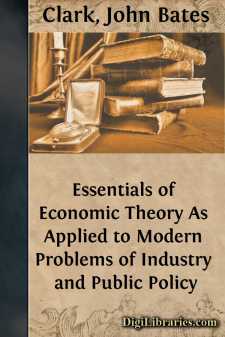Categories
- Antiques & Collectibles 13
- Architecture 36
- Art 48
- Bibles 22
- Biography & Autobiography 813
- Body, Mind & Spirit 142
- Business & Economics 28
- Children's Books 17
- Children's Fiction 14
- Computers 4
- Cooking 94
- Crafts & Hobbies 4
- Drama 346
- Education 46
- Family & Relationships 57
- Fiction 11829
- Games 19
- Gardening 17
- Health & Fitness 34
- History 1377
- House & Home 1
- Humor 147
- Juvenile Fiction 1873
- Juvenile Nonfiction 202
- Language Arts & Disciplines 88
- Law 16
- Literary Collections 686
- Literary Criticism 179
- Mathematics 13
- Medical 41
- Music 40
- Nature 179
- Non-Classifiable 1768
- Performing Arts 7
- Periodicals 1453
- Philosophy 64
- Photography 2
- Poetry 896
- Political Science 203
- Psychology 42
- Reference 154
- Religion 513
- Science 126
- Self-Help 84
- Social Science 81
- Sports & Recreation 34
- Study Aids 3
- Technology & Engineering 59
- Transportation 23
- Travel 463
- True Crime 29
Social Justice Without Socialism
by: John Bates Clark
Categories:
Description:
Excerpt
It is currently reported that the late King Edward once said, "We are all Socialists, now": and if the term "Socialism" meant to-day what His Majesty probably meant by it, many of us could truthfully make a similar statement. Without any doubt, we could do so if we attached to the term the meaning which it had when it was first invented. It came into use in the thirties of the last century, and expressed a certain disappointment over the result of political reform. The bill which gave more men the right to vote did not give them higher wages. The conditions of labor were deplorable before the Reform Bill was passed and they continued to be so for some time afterwards. A merely political change, therefore, was not all that was wanted, and it was necessary to carry democracy into a social sphere in order to improve the condition of the poorer classes. The term "Socialism," therefore, was chosen to describe a play of forces that would act in this way on society itself, and was an excellent term for describing this right and just tendency. The name was quickly adopted by those with whose practical plans most of us do not agree; but its original idea was democracy carried into business, and at present that is the dominant tendency of all successful parties. For six months we have been living under what may be called "triumphant democracy," not because the Democratic Party has beaten its rivals and come into control of the Government, but for a much deeper reason, namely, that a democracy carried into industrial life is the dominating principle of every political body that can hope for success. Every party must show by its action that it values the man more than the dollar. To this extent we are all democrats and wish the Government to act for the people as well as to be controlled by the people.
When we differ, it is in deciding on the means to carry out our common purpose; and here we differ very widely. Some would use the power of the State to correct and improve our system of industry, and these constitute a party of reform. Others would abolish that system and substitute something untried. For private capital they would put public capital and for private management, public management—either in the whole field of industry or in that great part of it where large capital rules. These are Socialists in the modern and current sense of the term.
One difference of view which was formerly very sharp is now scarcely traceable. Every one knows that we must invoke the aid of the State in order to make industry what it should be. The rule that would bid the State keep its hands off the entire field of business, the extreme laissez-faire policy once dominant in literature and thought, now finds few persons bold enough to advocate it or foolish enough to believe in it. In a very chastened form, however, the spirit that would put a reasonable limit on what the State shall be asked to do happily does survive and is powerful. It seeks a golden mean between letting the State do nothing and asking it to do everything. It is this plan of action that I shall try to outline, and it will appear that even this plan requires that the State should do very much. Under an inert government the industrial system would suffer irreparably.
The thing first to be rescued is competition—meaning that healthful rivalry between different producers which has always been the guaranty of technical progress. That such progress has gone on with bewildering rapidity since the invention of the steam engine is nowhere denied; and neither is it denied that competition of the normal kind—the effort of rivals to excel in productive processes—has caused it. It has multiplied the product of labor here tenfold, there, twentyfold, and elsewhere a hundredfold and more.
This increased power to produce has rescued us from an appalling evil. Without it, such a crowding of population as some countries have experienced would have carried their peoples to and below the starvation level. Machinery now enables us to live; and if world-crowding were to go on in the future as it has done, and the technical progress should cease, many of us could not live. Poverty would increase till its cruelest effects would be realized and lives enough would be crushed out to enable the survivors to get a living. Of all conditions of human happiness, the one which is most underestimated is progress in power to produce. Hardly any of those who would revolutionize the industrial State, and not all of those who would reform it, have any conception of the importance of this progress. It is the sine qua non of any hopeful outlook for the future of mankind.
I am to speak, however, of justice in the business relations of life, and it might seem that this shut out the mere question of general prosperity. The most obvious issue between different social classes concerns the division of whatever income exists....







